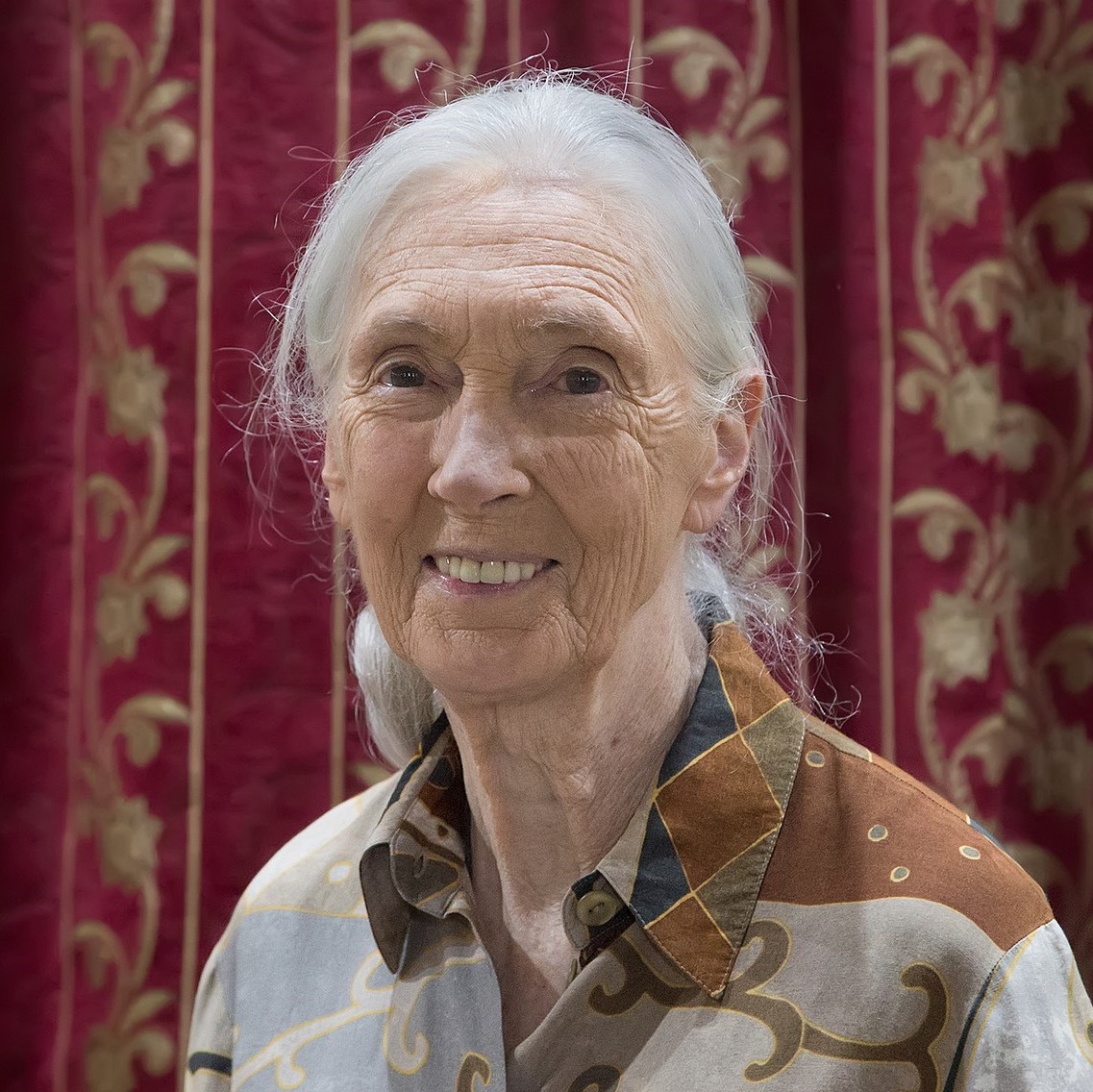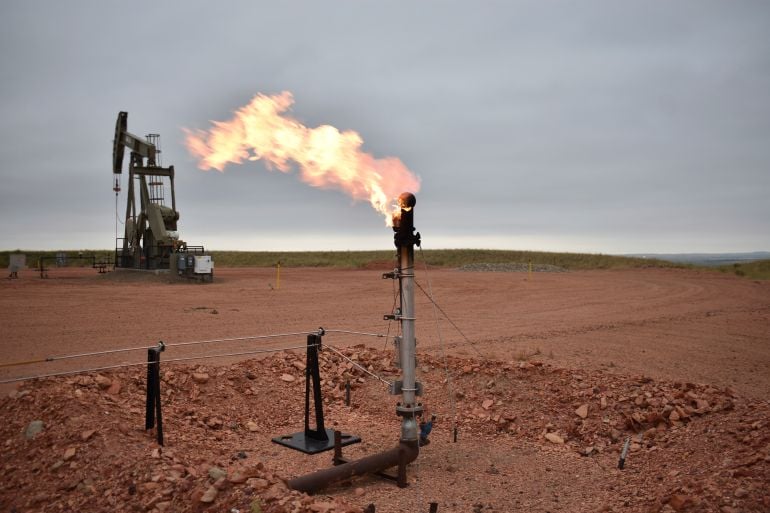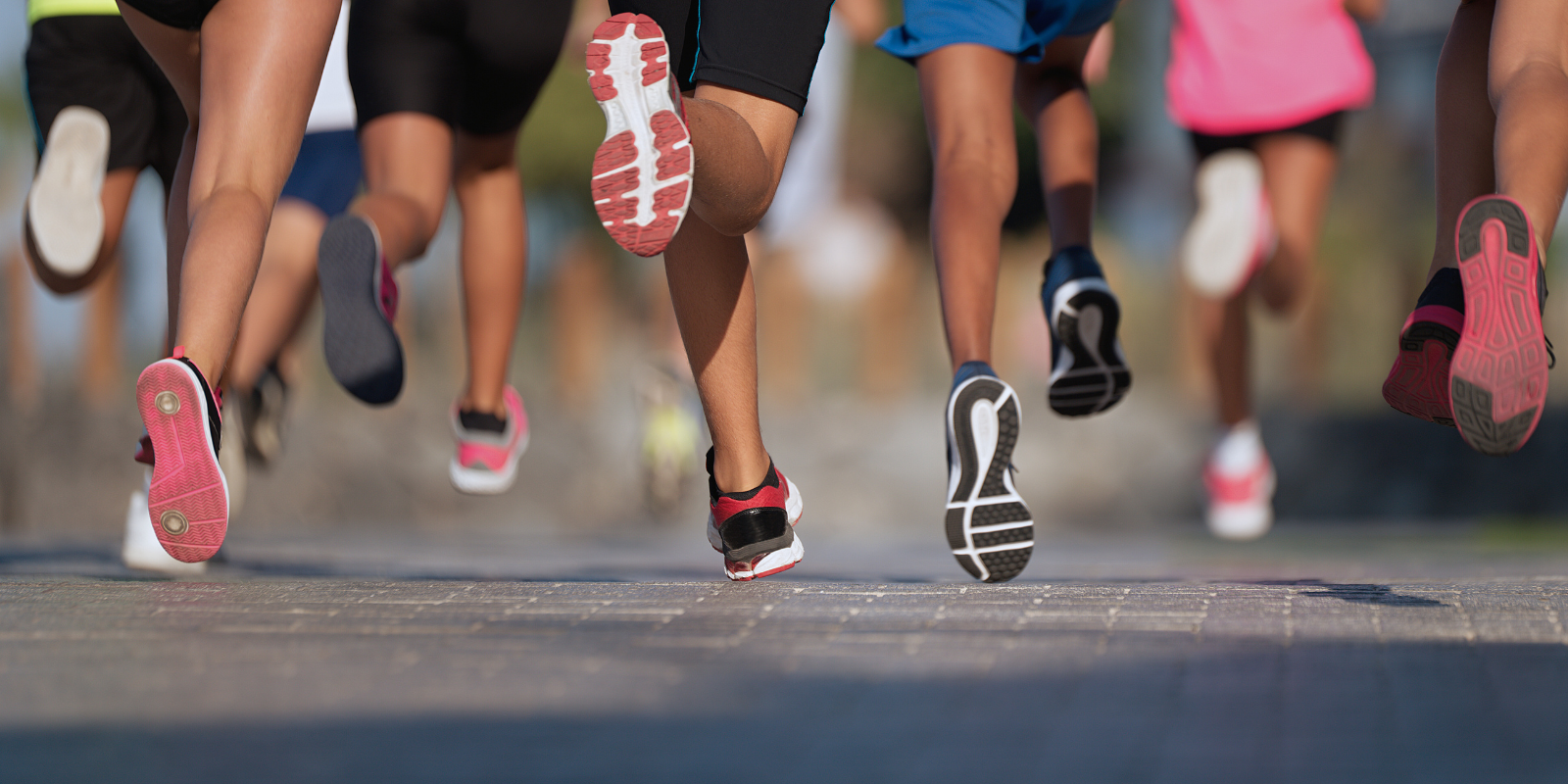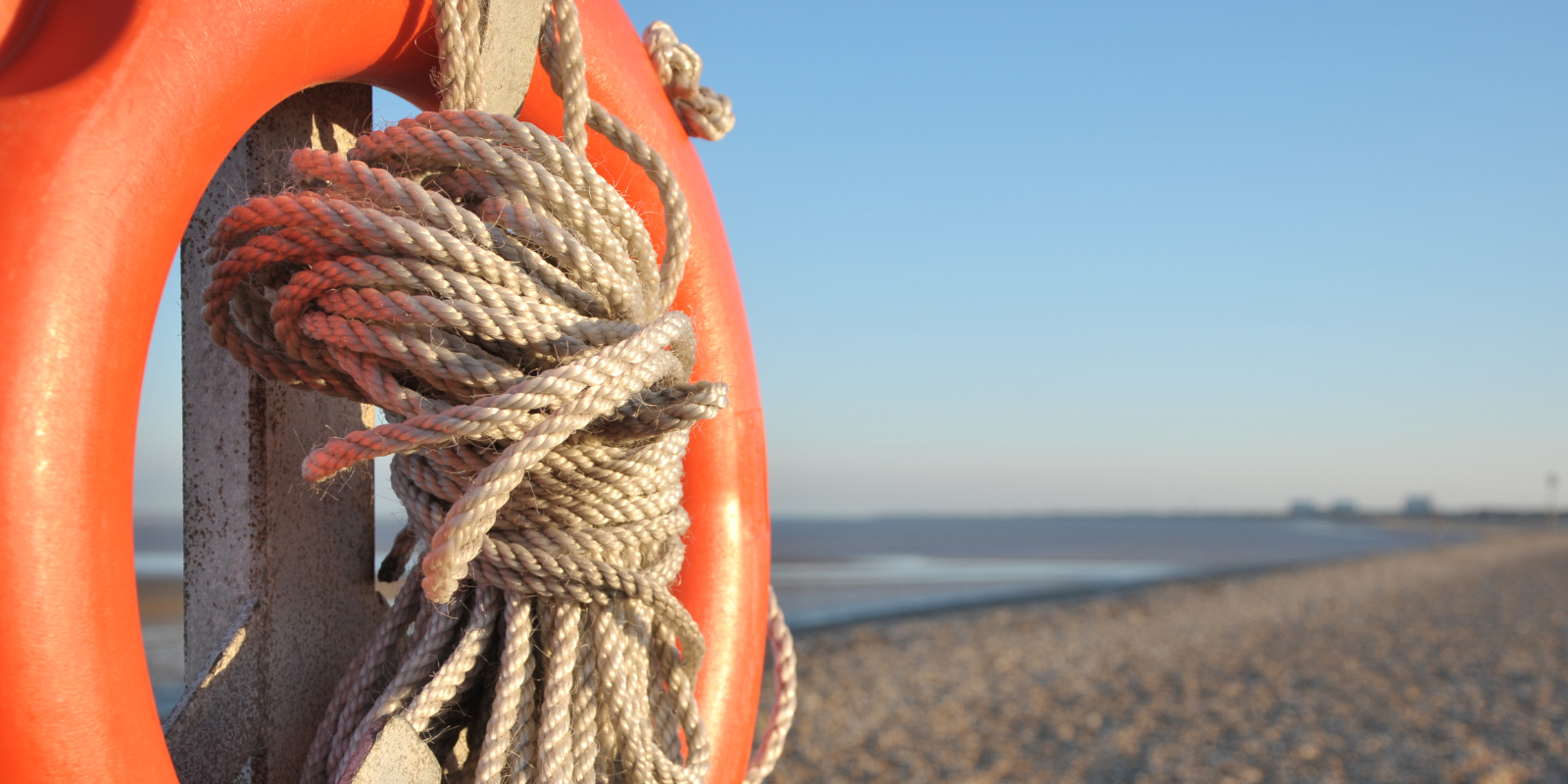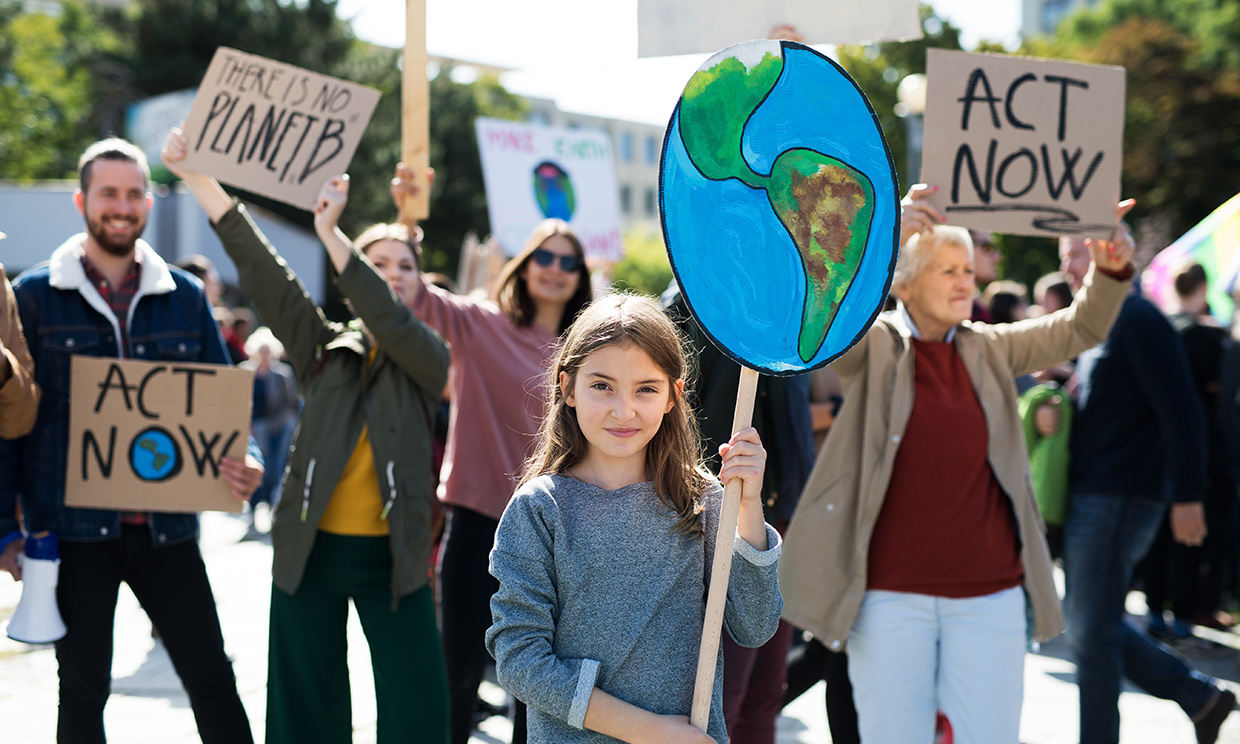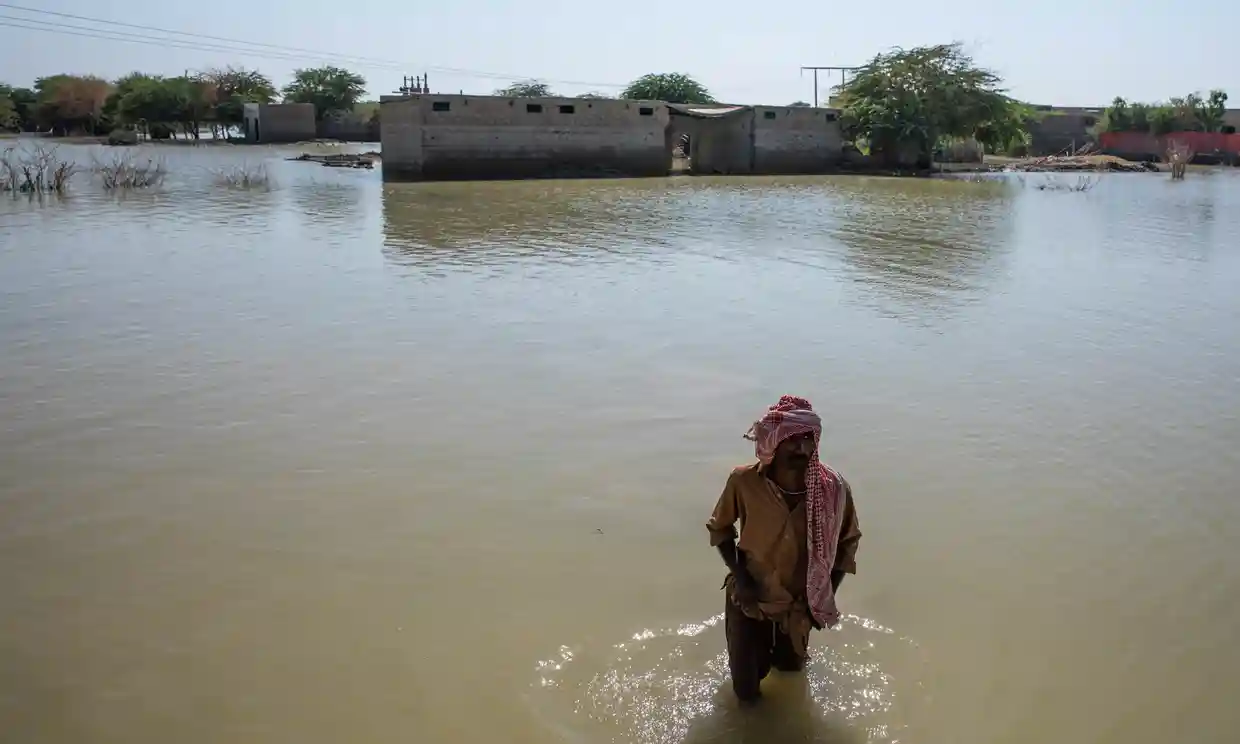146: Together We Can Change the World with Jane Goodall
What do you get when you swap the office for a classroom and our hosts for school pupils? An incredibly special episode, we hope you’ll agree.
About this episode
Yes, that’s right – this week’s conversation is brought to you from Totnes Progressive School, where the children were joined by an extraordinary guest: Dr Jane Goodall DBE, Founder of the Jane Goodall Institute and United Nations Messenger of Peace.
With the support of Outrage + Optimism’s Tom Rivett-Carnac and his sister Bee, who together wrote and illustrated a children’s book voiced by Dr Goodall, the pupils take it in turns to ask about their guest’s experiences, work, and thoughts on the future.
From Dr Goodall’s memories of her own childhood to reflections on what children now can do to help in healing our planet, this is a moving lens on a remarkable life spanning nearly nine decades. Dr Goodall shares lessons from her mother about working hard and not giving up on dreams, as well as how together we can – and will – change the world.
Thanks so much to Airaphon for all the support with producing this episode.
We hope you find the conversation as inspirational as we do.
—
Mentioned links from the episode:
- READ: When We All Stopped written by Tom Rivett-Carnac and illustrated by Bee Rivett-Carnac
- LISTEN: When We All Stopped narrated by Dr Jane Goodall, directed by Avi Ofer, and published by TED-Ed
—
Thank you to our amazing guest this week, Dr Jane Goodall DBE!
Jane Goodall Institute UK: Twitter | Instagram | Facebook
Roots & Shoots UK: Facebook
Watch
Full Transcript
Jane Goodall: [00:00:00] I've got a special greeting for all of the children. I guess you as well. Uhuhuhuhuhu. Which is, me Jane in chimpanzee.
Tom: [00:00:27] Hello and welcome to Outrage + Optimism. I'm Tom Rivett-Carnac.
Totnes Progressive School: [00:00:30] I'm Bee Rivett-Carnac. I'm Sofia. I'm Zoe. I'm Rosemary. I'm Amber. I'm Roo. I'm Ella. I’m Antoine. I'm Louis. I'm Albie. I'm Jack. I'm Fiona. I'm Kitty. I'm Katya. I'm Romily. I'm William. I'm Esther.
Tom: [00:00:46] Okay. We have some special guest co-hosts for you today for a special conversation about What Happened When We All Stopped with Dr. Jane Goodall. Thanks for being here.
Tom: [00:01:02] Hi, everyone. It's Tom here. So I am very excited today to bring you a special episode of the podcast. And I'm just going to give you a few words here to explain what it is and the context. But we have Jane Goodall joining us, which is very exciting. So a couple of years ago, I sat down and did something I very rarely do, which is I wrote a poem and it was about the moment that we were in lockdown and my hopes for the future and how we could use this moment to transform where we were and our overall trajectory. This poem that was a sort of exercise of an evening was picked up by my sister, who is the most brilliant illustrator. Her name is Bee, and she turned it into a children's book that we just made available for free online. This was then discovered by our friends at TED Ed, who then turned it into an animation which they put on the TED Ed channel and had hundreds of thousands of views and was narrated by none other than Jane Goodall. So this was all very exciting. And the final piece of the story is now about a month ago, the book was actually picked up and properly published by Cottage Door Press. So you can get it anywhere you get books. So if you like it and you have kids or kids in your life that you want to buy it, great. If you purchase the book and as a proportion of the proceeds go to the Jane Goodall Institute. Now, in recognition of this moment of publication, that's obviously very exciting for me, and Bee, we've produced this special episode of Outrage + Optimism.
Load MoreAnd as I said, it features Jane, but it's also about a children's book. So rather than us asking her questions, we have done a takeover by a group of ten year olds. So we went into my daughter Zoe's School, Totnes Progressive School, and Zoe was there in the class together with Bee’s daughter Esme and all the other kids in the class. And we spent about 35 minutes asking Jane questions, and they were amazing questions. And of course, she gives incredibly thoughtful and insightful answers. So that's this week's episode. I hope you enjoy it. I think it's going to be a lot of fun. I really enjoyed the conversation and being there with the kids, so we're going to go to that in a minute. But first, I'm just going to play you the audio from the TED Ed video, which is Jane narrating the poem. And then after that we'll go to the normal introduction. I should just add, this was recorded in a school. So of course there's background noise, there's other things going on. It's not the normal audio quality of Outrage + Optimism. I know you'll be patient with us. Enjoy it. And we'll be back next week with a normal episode with Paul and Christiana. Thanks for being here this week.
Jane Goodall: [00:03:35] It starts as a whisper, a word on the air. It can't quite be heard, but you know that it's there. As gentle as sunlight, as tenacious as air, and its route to the heart could not but prevail. And the people looked up from their day to day tasks, their day to day jobs, their day to day masks. They heard or they felt with a whisper could leave. And they looked with eyes wide at what that might mean. And once they could see it, they hadn't a chance to resist the sweet song of the deep spell it cast. But the feeling it brought them at first glance was pain as they lifted their eyes on the land they had claimed. Since they saw at last, as if raised from a dream, they were almost alone in the land of the sea. But the trees had almost gone and the bees had almost gone and the creatures in their shells by the seas had almost gone. And the people felt sad as they saw their new earth. But they knew this was it. One wild chance for rebirth. Breaking new ground seeds rolling down, smell of the earth on your hands and your brow. No time for sorrow. We're building tomorrow. The sound of things growing now. Keeps us around us. As the wildness grows and the deep wood grows and the sense that the futures come to meet you, Rose. There's no chance we can rest. We must do our best. This moment can lead us back home. That's your test. It starts as a whisper. A word on the air can't quite be heard, but you know that it's there. It then spoke like thunder until we all moved. And we could and we did and it’s done. She’s renewed.
Tom: [00:06:10] Jane, it's so lovely to see you again. How are you?
Jane Goodall: [00:06:12] I'm fine. Great to see you, too.
Tom: [00:06:15] Thank you so much for joining us again on Outrage + Optimism. It is a pleasure and a privilege to see you and to talk to you. And thank you for joining us here with the children of Totnes Progressive School and Freshford Primary School, who are joining you for this special conversation. So if everyone wants to say hello.
Jane Goodall: [00:06:31] I've got a special greeting for all of the children. I guess you as well. Uhuhuhuhuhu. Which is, me Jane in chimpanzee.
Tom: [00:06:49] Wow, that's wonderful. About two years ago, I was in my kitchen, and much to my surprise, a poem arrived fully formed in my mind about what I hoped the world would be like after the pandemic. That turned into a book with my sister's brilliant illustrations and subsequently a TED Ed video with your amazing voice provided to it. And now it's been published by Cottage Door Press. So it's available in all good bookshops. And today we're handing over our podcast to the children in the room here with us to ask questions of you about the future, about your life and other things. So, first of all, thank you very much for being here. I'm now going to hand over to Bee, for the first question and then it'll be over to the kids.
Bee Rivett-Carnac: [00:07:28] Many people found the pandemic to be frightening, but the book suggests it could also lead to a better future. Do you think we can take the opportunity to change that the pandemic has given us?
Jane Goodall: [00:07:42] I think that people have finally begun to realize, thanks to the pandemic, that it's our fault. We brought it on ourselves because we so disrespect animals that we've moved into their habitat. We forced them closer to humans. We've captured them, trafficked them around the world to sell in wildlife markets. We've crowded animals into terrible, cruel factory farms. And in all these situations, we provide an opportunity for a virus, in this case, to jump from one animal to one person. And if it bonds with a cell in that human body, it can create a new disease. So people are beginning to realize that we need to treat animals with respect. We need to understand they're sentient beings capable of feeling fear and pain and treat them differently if we want to avoid other pandemics of this sort.
Totnes Progressive School: [00:08:41] What drove you to be passionate about what you do and why?
Jane Goodall: [00:08:44] Well, I was born loving animals. I've always loved animals. I had the great opportunity of studying the ones most like us, the chimpanzees. And when I discovered that forests where they live were disappearing and chimpanzee numbers were dropping, I realized I had to try and do something about it. So I'm very passionate about all animals and I love the forests particularly, but all environments. And I feel that because people listen, I need to spend a lot of energy trying to tell people we must respect the environment and we're part of it. We're not separate. Every air you breathe, every water you drink, every mouthful of food, all comes from the natural world.
Totnes Progressive School: [00:09:30] Hi, I'm William. What were you like as a student at school? Did you have any learning difficulties and how did you overcome them?
Jane Goodall: [00:09:40] Well, I was absolutely hopeless at languages. I tried really hard to learn French and I thought I was getting on, but I really wasn't. I was hopeless at Latin and anyway, I didn't see what use Latin would be to me, so I didn't particularly want to learn Latin and those were the only two languages. So I dropped Latin and eventually when I got a bit older, I didn't have to worry with French anymore, so I didn't really overcome it. I just learned to live without it. That's the answer to that.
Totnes Progressive School: [00:10:18] How did you feel when you knew you'd be able to go to Tanzania?
Jane Goodall: [00:10:21] Well, you know, when I was ten years old, I decided I would grow up, go to Africa, not especially Tanzania, just Africa, and live with wild animals and write books about them. That was my dream. And everybody laughed at me and said, Well, how can you do that? You don't have any money. Africa's far away. Might be dangerous, and you're just a girl. We're going back eighty years now. And so they laughed at me and said, Dream about something you can achieve. Except my mother. What she said to me. I say to all of you, for some dream that you have, you’re probably going to have to work really hard, take advantage of every opportunity. And if you don't give up, hopefully you'll find a way. And so lots of young people like you and much older people like Tom have written to me from around the world and said, Jane, thank you. Because you've taught me because you did it. I can do it, too. So that was a very wise mother I had. And when I first got to Africa, it was Kenya, actually. I would have studied any animal, but I met Dr. Louis Leakey and he gave me the chance to work with the animal most like us. In fact, they're so like us, I don't think of them as animals at all. Chimpanzees are chimpanzee beings. We're human beings.
Totnes Progressive School: [00:11:46] Hello. I'm Romily. What's your favorite natural environment and why?
Jane Goodall: [00:11:51] I absolutely love the forest, because I love trees. And when I'm out in the forest, particularly if I'm by myself, I feel a connection to this great spiritual power out there. I feel a connection to the natural world, and especially if I'm by myself, because when you're by yourself, you can't forget yourself and be part of that beautiful forest world with the greens and the browns and the rustling of the leaves and the little sunlight coming through the canopy and speckling on the ground. I just love the forest, I love the trees. And isn't it terrible that we're losing forests so fast? We all have to fight to try and protect them because, you know, we get air from them, oxygen, and they absorb this terrible carbon dioxide gas from the atmosphere and we're just destroying them. And as they burn, they release all this carbon dioxide back into the atmosphere.
Totnes Progressive School: [00:12:52] Hi. I'm Amber. And when you think about the future, what do you hope for?
Jane Goodall: [00:12:58] What I hope for the future is that we human beings will learn to realize that we're just one other animal in the animal kingdom. And the big difference is that we have developed an amazing brain. And animals are way, way, way more intelligent than science used to think. I mean, I don't know if any of you have seen my octopus teacher, but if you haven't, you should. And also, you can Google, not Picasso, the artist, but Pigcasso. And there are various videos that will pop up and you choose the one with the geographic yellow circle and you'll love it. It's amazing. Pigasso Anyway, animals are way, way, way more intelligent than we used to think. But look, I'm talking to you from my home in Bournemouth in England. All this way. That's pretty amazing. I don't think any animal could develop this kind of internet, this kind of, you know, way of communicating electronically. And so it's very sad that this most intellectual animal is destroying it's home. We've only got this planet, haven't we? You know, there was a rocket that went up to Mars and the little robot crept off and it's been crawling around on Mars, taking photos. One time people thought maybe we could live on Mars, but now we know we couldn't. And so we've just got this one beautiful planet. And why are we destroying it? I think that something's gone wrong. We've lost what I call wisdom. We're not so wise. And there seems to be a gap between this clever brain and the human heart, love and compassion. And I truly think only when head and heart work together can we attain our true human potential. So it's not just cold science. That's no good. It's got to be science with the heart.
Totnes Progressive School: [00:15:03] Hi, I'm Esme and have you always loved animals?
Jane Goodall: [00:15:07] I was born loving animals. People say, what triggered your love of animals? I don't know. Maybe something. When I was in my mother's womb, I didn't know. But I was born. So when I was just one year old, mum came up to my bedroom. I don't remember this. And I had taken a whole handful of earthworms to bed with me. And she said, Jane, you were watching them so carefully, I think. I think you were wondering, how do they walk without legs? So, you know, this started a love of and fascination for animals, wondering how they do what they do. And I'll give you a lovely example of how children's minds work. I was looking at the little boy of three years old and he was watching a snail. And you know how snails glide along like that. And he was watching this snail and suddenly he picked it up. He put it on the window pane and he ran inside so that he could look underneath to see if he could find out how on earth it was moving. So I was lucky I had a mother who supported this love, and so she helped me find books about animals when I was just learning to read. And nothing ever changed. I always have loved animals. All animals, really. But my favourite animal of all. Do you know what it is? Does anybody know what my favourite animal is? Yes, you back there in the middle.
Totnes Progressive School: [00:16:36] Chimpanzee?
Jane Goodall: [00:16:37] No. You see, everybody thinks of chimpanzees. Chimpanzees are too like people. They're much too like people. That's very mean ones. And they can go to war and fight and be aggressive as well as being loving and kind. My favorite, favorite, favorite animal is a dog. I grew up with Rusty, and Rusty is up here behind me somewhere. Yes. Where is he? Here he is. You can see him up there. And Rusty taught me all about animals having feelings, that animals had personality, that animals had minds, that animals could make decisions, that animals had feelings, they could be happy and sad. And so when I finally got to university because my mentor told me I had to get a degree and I was told I'd done everything wrong in my study, that I shouldn't have given the chimpanzees names, they should have had numbers. And I couldn't talk about chimpanzees having personality or mind or emotion because those are unique to humans. But Rusty had taught me otherwise. And because chimpanzees just emphasized it because they're so like us in so many ways, kissing, embracing, holding hands, patting one another, begging for food and then swaggering aggressively and shaking their fists and throwing stones. And they also use objects as tools. So they're very, very like us. Deep they are.
Totnes Progressive School: [00:18:12] Hi, my name's Sofia. And my question is, what do you think we can do as children to help the climate and the natural world?
Jane Goodall: [00:18:19] Oh, well, of course, I'm going to tell you to join our program, which Tom knows all about, and it's called Roots and Shoots, and it's in 65 countries. And we have members in kindergarten, very lots of members in university, even young adults, staff of big corporations. But basically, its most important message every single day that you live, that's all of you in that room. Every single day you make some impact on the world and you get to choose what sort of impact you make. And every group of roots and shoots, they discuss what they care about. Perhaps they care about cruelty to animals. Perhaps they care about homeless children with nowhere to live. Perhaps they're worried about the refugees and the fighting in Ukraine. Perhaps they care about the river being polluted. So you discussed your problems and you choose to work on three, one to help people, one to help animals and one to help the environment. And then if you join Roots and Shoots, you can be linked with this growing family in 65 countries and you'll get all the ideas and you can share your ideas. And it's called Roots and Shoots, because I told you already, I love trees. Okay, so my favorite tree out here in the garden because I'm talking to you from the house where I grew up and it's a beech tree and it's big now. I used to climb it when I was a child and it started off as a little seed, no bigger than that. And when it started to grow, I could have picked it up and I would have seen tiny little white roots and a tiny little chute, and it would have seemed so weak. But, you know, there's a magic in that seed. It's like a life force that's so strong that those little roots to reach the water that the tree will need can work through rocks and eventually push them aside. That little shoot to reach the sunlight which the tree will need, can work through cracks in a brick wall and eventually knock it down. So we see the rocks and the walls as all the horrible problems that we face today. So it's a message of hope. Hundreds and thousands of young people around the world can break through the walls, push aside the rocks, and make the world a better place for people, for animals and for the environment. So you'd love to be part of that, wouldn't you?
Totnes Progressive School: [00:21:01] Yes. Hi, I'm Louis. And my question is, what is the most human-like trait you've ever seen a monkey do?
Jane Goodall: [00:21:10] The chimpanzees, you mean?
Totnes Progressive School: [00:21:11] Yeah. Chimpanzees.
Jane Goodall: [00:21:13] Apes don't have tails. Monkeys do. One little girl the other day, I think she was five years old and she said, Why don't apes have tails? And I thought, wow, I don't know. Why haven't humans got tails? We're primates, too. Anyway, to answer your question, what's the most human-like thing? I think what I love is watching a mother and her little infant and watching how she cares for that child and plays with it and how quick she is to protect it. And then as the child grows older, doesn't go away from the mother like so many animals, but stays hanging around. And even a fully adult male can travel around with his mother from time to time. So these family bonds, I think they're very human, like.
Totnes Progressive School: [00:22:08] Thank you. What was the first chimpanzee you ever saw like?
Jane Goodall: [00:22:12] What was the first chimpanzee I saw?
Totnes Progressive School: [00:22:15] What was it like?
Jane Goodall: [00:22:16] Oh, well, first of all, for four months, they ran away from me. I mean, you have to be patient if you want to watch animals. And I was really worried. I knew if I had time, I could get them to trust me. But I only had money for six months because I hadn't been to college then. It was very difficult to get the money. And after four months, I thought, Oh, my goodness, if I don't see something important soon, the money will run out and I will have let Louis Leakey down, and that will be the end of my dream. But fortunately, one chimpanzee, David Greybeard, began to lose his fear of me. And the first time that I was able to come really close to him, he was sitting on the ground and I sat near him. And chimpanzees love palm nuts, oil palm nuts. And this was a lovely, ripe red one on the ground. And I picked it up and I held it out towards him on my hand. And he turned his head away and I put my hand closer and he turned around. He looked directly into my eyes and he reached out. He took and dropped the nut, but very gently squeezed my fingers, which is how chimpanzees reassure each other. And so in that moment, we communicated perfectly. He understood that even though he didn't want the nut, my motive was kind to offer it to him, and I understood all that. So we communicated the way that early, early humans must have communicated before we discovered language, this kind of language that I'm using now. It was a very magical moment.
Totnes Progressive School: [00:23:59] Hi, I'm Esther. And have you ever been led to see a baby chimpanzee being born?
Jane Goodall: [00:24:07] I have not personally seen a baby chimpanzee being born, but one of our videographers managed to video it. So I've seen it on video and I've seen babies so small that the umbilical cord is still attached. And I've watched step by step by step by step the infant getting a bit older and learning to walk. And they're wonderful. I love them.
Totnes Progressive School: [00:24:36] Have you ever been in danger with an ape?
Jane Goodall: [00:24:40] Have I ever been in danger from the chimpanzees? Right at the beginning. You know, first I say they were running away from me and then they began to lose their fear. They realised I wasn't frightening after all. So then they treated me as if I was a predator, like a leopard. And that was scary. I don't think they would have done anything, but they could have. They're much stronger than us, but they would charge towards me and they'd be screaming and shaking the branches. And one of them actually hit me on the head. So it was scary, but I don't think I was really in danger. Not really.
Totnes Progressive School: [00:25:20] Have you ever been shut down by a sexist comment?
Jane Goodall: [00:25:23] Shut down by sexist comments?
Totnes Progressive School: [00:25:25] Yes.
Jane Goodall: [00:25:26] No. When I was very young, there were sexist comments. Like people said, Oh, well, she's only getting money from the geographic because she's got nice legs. That was a long time ago. And we didn't think in terms like we do today. So I thought, well, you know, God gave me nice legs. And if my nice legs have helped me get money to do what I want to do more than anything in the world, which is study chimpanzees. Thank you, legs. If somebody said that now, it would be sexist and the person would be angry and might try to sue. So we just have to sort it out. And you know, the main thing is respect and that was not respectful. We know that now. But back then it didn't seem to matter that much because it was a different world I grew up in. You know, when I grew up, there was no television, there were no planes going back and forth. I went to Africa by boat, it took a month. And there were no computers, there was no social media, nothing like that. It was a very different world and we had different ways of thinking back then.
Totnes Progressive School: [00:26:40] Okay. Thank you. I just wanted to ask, what did it feel like when people thought your work was fake because you were a woman?
Jane Goodall: [00:26:49] Well, quite honestly, you know, back then I didn't really want to be a scientist at all. I just wanted to be a naturalist. And if they said what I was saying wasn't true, well, bad luck, but I'm going to go on and find out more and more and more. I know in my own heart it's true. And fortunately, the geographic centre filmmaker, who filmed the chimpanzees doing things that some scientists said couldn't be and then people had to believe, didn't they, because there was the evidence. But, you know, I think one important thing when the scientists confronted me, I did get angry at them. I didn't argue with them. I just very quietly talked about what the chimps did. That's what I'd seen. And eventually they came to change their mind. And it's like if you meet somebody who thinks differently from you, it's not much good being arguing with them and telling them they're bad people and pointing fingers at them because they might say, Oh, yes, you're right, but they might not actually really agree. They might just be saying that to get rid of you. So what have you got to do? You've got to get into their heart because people really must change from within. They must want to change. And how do I do that? By telling stories, finding a story. That's just right. And I'll give a lovely example. It wasn't actually me, but it was I was talking to the CEO of a big corporation, and he said, Jane, for the last eight years, I've been really working to make my cooperation totally ethical. Like I treat the customers right, make sure that where we get our products from isn't harming the environment, make sure the wages are fair and work with the communities to help them live a better life. And he said there were three reasons. One, we live on a planet and the resources of the planet, the natural resources like water and trees, wood and so on. They won't go on forever. Then they come to an end. And he said, I've seen in some places that the natural resources that we use are being used up faster than nature can replenish them. He said, secondly, consumer pressure, that's where we come in. People are beginning to want products that are made ethically but do care about the wages people are paid that do care about harming the environment but don't want products that have inflicted horrible cruelty on animals. And so companies are changing because consumer pressure, if people aren't going to buy those products, they're going to have to produce them ethically. But he said what really tipped the balance for me was my little girl of eight and she came home from school one day and she said, Daddy, they're telling me that what you're doing is hurting the planet. That's not true, is it, Daddy? Because it's my planet, too, that reached his heart. That shows how you can change your parents, your grandparents, your teachers, tell stories, don't get mad and always think maybe they're behaving like this because they haven't understood. Give them the benefit of the doubt.
Tom: [00:30:23] That's a lovely story. Jane, can I ask anyone else want to ask a final question?
Totnes Progressive School: [00:30:27] What did you feel like when you first were accepted to the chimpanzee, like they accepted you?
Jane Goodall: [00:30:34] Well, I felt incredibly excited, a little bit nervous, especially when I got to look at Gombe. You have to go along the lake in a boat. And I looked up and there were these hills going up and thick, thick valleys full of vegetation, thick forest. And I thought, how am I going to find the chimpanzees? And it was really worried about letting Louis Leakey down, because, you know, he was suggesting I did something that nobody had done. Nobody had ever studied chimpanzees in the wild. And so it was excitement. It was a little bit of worry, but mostly excitement. It was my dream.
Tom: [00:31:19] Jane, you've been very grateful with your time. Thank you so much. In a minute, I'm going to ask any of the kids that want you to come up here and say thank you to you for the time. And she's very generous to spend with us. For now, you've been on this podcast before, and you know that we always ask guests the same final question. So I'm going to ask you again, particularly now coming out of a pandemic in a world that is increasingly facing geopolitical tensions, increasing focus on military spending. Can you tell us one thing that you feel outraged by and something that you feel optimistic about?
Jane Goodall: [00:31:48] Well, I feel outraged at what Russia is doing, or rather Putin, it's not Russia, I feel outraged about what Putin is doing to the people of Ukraine. And there's a big danger that people will say, we hate Russians. And it's not true. Most Russians hate the war as much as we do. But they've been told lies and they're afraid because it's a government that is very repressive. And if anybody speaks out against it, they get put in prison and probably beaten and maybe killed. So that's something that makes me very, very angry. And roll up your sleeves and get out to do things about it. You know, all over the world now there's young people not only in Roots and Shoots, but other organizations as well. And I think now that you young people understand the problems because you can't not understand, it's all in the news. And, you know, another of my jobs, there's a lot of bad stuff going on, but I've been lucky and met so many amazing people doing incredible things. I've seen places that were absolutely destroyed by us, but give them time and hope, help and they can come back. So I'm excited about what young people are doing. I'm excited about the resilience of nature. I'm excited about the brain that's beginning to come up with ways of slowing down climate, the climate crisis and slowing down the loss of species. So that's what it is. And, you know, when I was in Tanzania last time, we brought a lot of Roots and Shoots groups from all around the city together. And they were sharing their projects and talking to each other, making presentations to me. And at the end, they all stood up together and they were shouting out, Together We Can, meaning together we can change the world. And I said, Yes, we can. We know what to do. But do we have the will to do it? Will we do it? So now they all stand up at the end and say, Together We Can, Together We Will. So do you want to join me in that? Do you want to change the world? You do, don't you? Do you believe it? So let's do it together. Jump up and say, together we can.
Totnes Progressive School: [00:34:23] Together we can, together we will.
Jane Goodall: [00:34:25]. Yeah, there we go. You see, that's a lovely way to end the meeting.
Tom: [00:34:33] Jane, thank you so much. It's always a pleasure and a privilege to speak to you. It is remarkable to see how, after all these decades, you're approaching these issues with such dedication, such courage, and such a focus on the role of hope to transform our world. Thank you for everything you do. We have really enjoyed having a conversation with you today and look forward to staying in touch.
Jane Goodall: [00:34:52] But your questions were great and I've loved talking to you.
Totnes Progressive School: [00:34:56] Thank you so much for trying to save the planet. Thank you so much, Jane Goodall. Thank you. Thank you so much. Thank you. Thank you.
Jane Goodall: [00:35:06] There we are. Well, and now we say bye bye.
Your hosts

Guests
